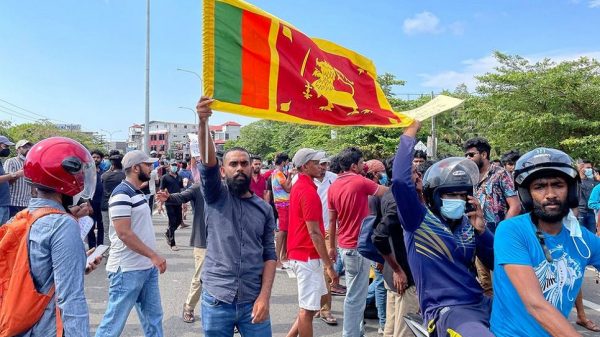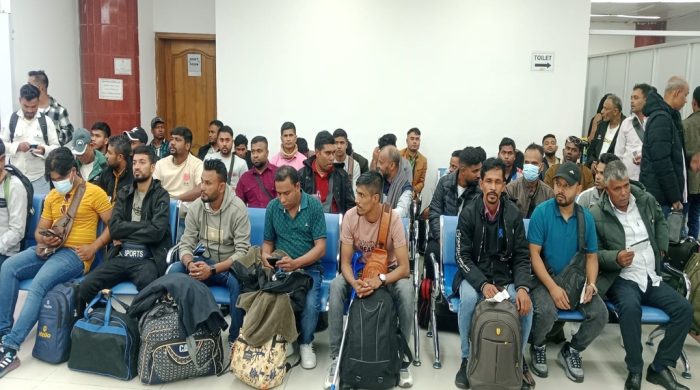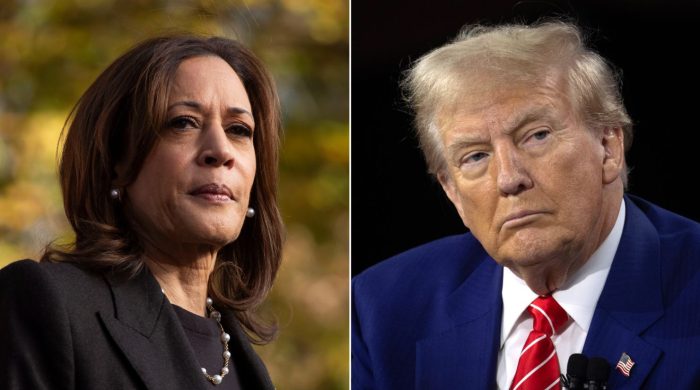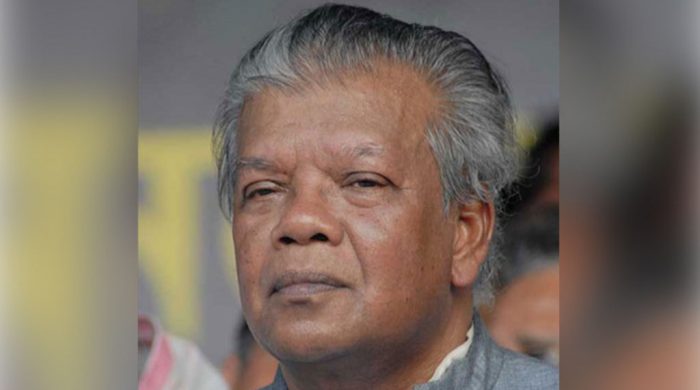Why Sri Lanka cabinet resignations won’t appease angry protesters

- Update Time : Tuesday, April 5, 2022
- 104 Time View

Sri Lanka’s cabinet and central bank governor have all quit as anger grows over rising food and fuel prices. President Gotabaya Rajapaksa has invited all parties to be a part of a new government. But as the economic crisis worsens in the country, those who’ve taken to the streets in protest say they won’t stop until Mr Rajapaksa resigns.
Across an island bubbling with anger and desperation, the chants and the placards are mostly directed at one man.
“Go Gota Go,” “Go Gota Go,” they say.
Gota is short for Gotabaya Rajapaksa, the country’s controversial president who many blame for the dire situation people are facing.
“He needs to go, he’s robbed everything from us,” said Nadhie Wandurgala who defied a country-wide curfew to protest on Sunday with her husband and two daughters.
As she clutched a handmade poster she explained how her family had gone from living comfortable lives to daily discomfort – power cuts of up to 17 hours, a daily scramble to find gas to cook with, and long queues to get petrol for their car.
“Even hospitals are running out of medicine, schools are running out of paper for exams, but the politicians get electricity every day.”
“They’ve never stood in long queues to get gas or kerosene,” she said, her voice full of contempt for those in power.
Nadhie isn’t an activist or a seasoned protestor. She works for the city’s clergy and prefers to stay away from politics. But she’s typical of the groundswell of anti-government opinion which is uniting people from all backgrounds, faiths and ages.
As Sri Lanka runs low on foreign currency reserves, it has been unable to pay for imports of essentials such as fuel. A drop in tourism due to the pandemic is one factor, but many say the president has mismanaged this crisis.
Experts say policies introduced by Mr Rajapaksa after he was elected in 2019 – steep tax cuts and an import ban – have exacerbated the crisis, as has his reluctance to get help from the International Monetary Fund (IMF).
Mr Rajapaksa has blamed previous administrations for the current state of affairs, but many like Nadhie’s daughter Anjalee say it’s time for him to resign immediately and accept full responsibility.
And as frustration grows, so have fears that his government is trying to stifle any criticism directed towards it.
Sunday’s curfew is just one measure designed to stop people from gathering. There was also a social media blackout and a special presidential notification prohibiting people from ” being on any public road, in a park, on trains or on the seashore” unless they have written permission from the authorities.
Nadhie and Anjalee were just some of the hundreds who risked arrest to attend a demonstration, taking to the streets despite the order to stay home.
“I came out today because my rights have been taken away. We have nothing to lose at this point.”
“Why have they even introduced this curfew ? Is it to protect us?” Anjalee mused. “It doesn’t make sense at all”.
“I would call these dictatorial, autocratic and draconian steps,” opposition leader Sajith Premadasa told me at an impromptu protest on Sunday.
Mr Premadasa and other members of his party were stopped at police barricades as they tried to enter the city’s Independence square.
“The supreme law of the land protects the right of the people to share their opinions, to demonstrate and to engage in peaceful democratic activities, so that right cannot be violated.”
This isn’t the first time President Gotabaya Rajapaksa, who runs the country alongside his elder brother Prime Minister Mahinda Rajapaksa has been accused of stifling freedom of expression.
The brothers have a history which goes well beyond their election victory in 2019.
Mahinda Rajapaksa has been president twice, while Gotabaya Rajapaksa is well known for his position as defence secretary when he was accused of perpetrating serious human rights violations in the final stages of Sri Lanka’s civil war.
Both also have a reputation of brutally cracking down on dissent.
In 2019, months after Sri Lanka’s Easter Sunday bombings Gotabaya Rajapaksa won the majority of popular support, after promising to rule Sri Lanka with a “strong hand”.
“People thought they’d provide us with national security, but they didn’t.. they failed at everything,” said Roshinta, who says she did not vote for him.
“I don’t want to see my country go to waste because of this particular family. They are so adamant and greedy for power they’ll probably stay on.”
On Thursday, the anger directed at President Rajapaksa went right to his doorstep, as protests outside his residence in Colombo turned violent.
Police used tear gas and water cannons to disperse the crowds, and authorities arrested dozens of protesters as well as some journalists covering the incident.
In a tweet, the EU delegation in Colombo urged the Sri Lankan authorities to “safeguard democratic rights of all citizens, including the right to free assembly and dissent, which has to be peaceful.”
Human rights groups including Amnesty International said many of those detained had been assaulted in custody.
Soon after Thursday’s protests, a state of emergency was imposed on the island, giving security forces sweeping powers of arrest and detention – authorities said it was to ensure law and order was maintained.
Overnight from Saturday into Sunday, officials in Sri Lanka’s Western Province said they’d arrested more than 600 people for violating the curfew.
On Sunday afternoon as we visited protests in Colombo, police with riot shields stood at a distance from demonstrators, watching on.
“This is the first time in my life I’ve protested,” said Sathsara as he stood by the side of a park wearing a t-shirt for one of his favourite bands, Oasis.
“This is my last resort”
The 29-year-old advertising copywriter who lives in the capital Colombo, usually spends his weekends going to gigs and eating out with friends, but all that’s stopped.
“We are at the prime of our lives, how are we going to achieve our dreams with all this happening?”
With daily power cuts and the cost of food spiralling, Sathsara says his bank balance is depleting, while his desperation mounts.
“Give us a government who can manage this. This one literally doesn’t care about us,” he said.
At another protest of mostly young families, Suchitra, cradling his 15-month-old baby boy, told me he was exhausted by the power cuts which don’t allow his son to sleep.
“The politicians in parliament are unfit. They’ve put the country in turmoil,” he said.
“They’ve not kept to their promises, people can’t suffer anymore.”

























